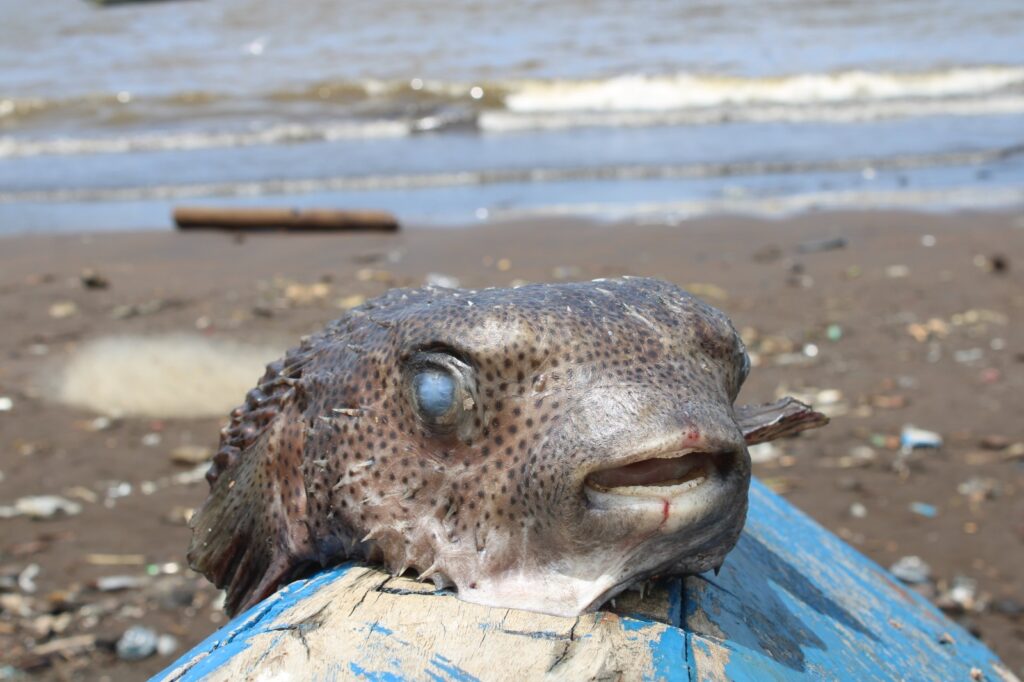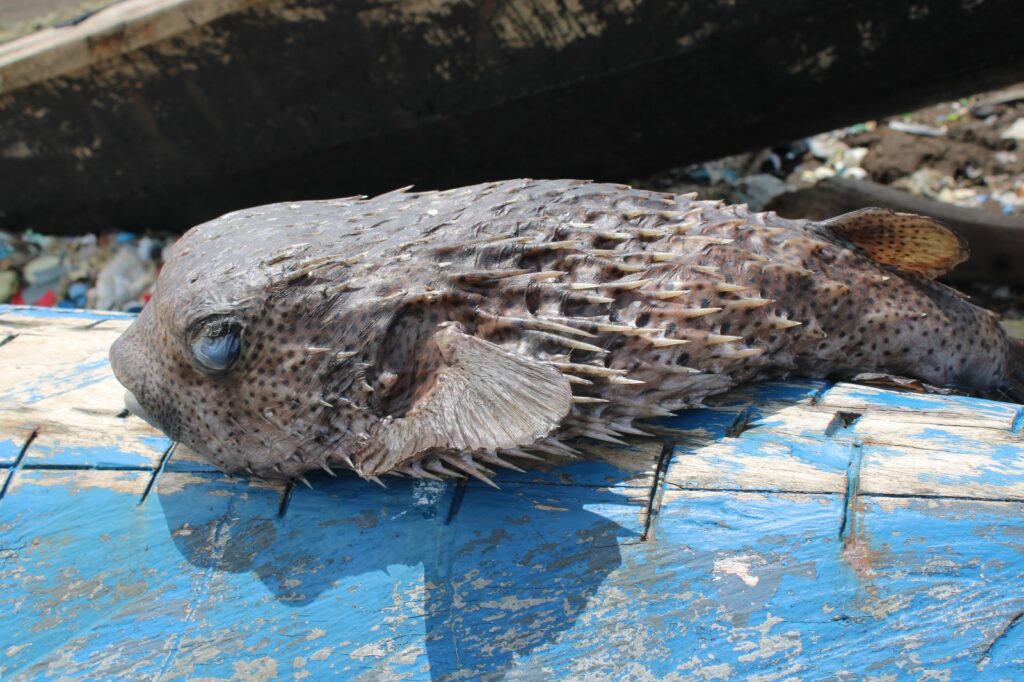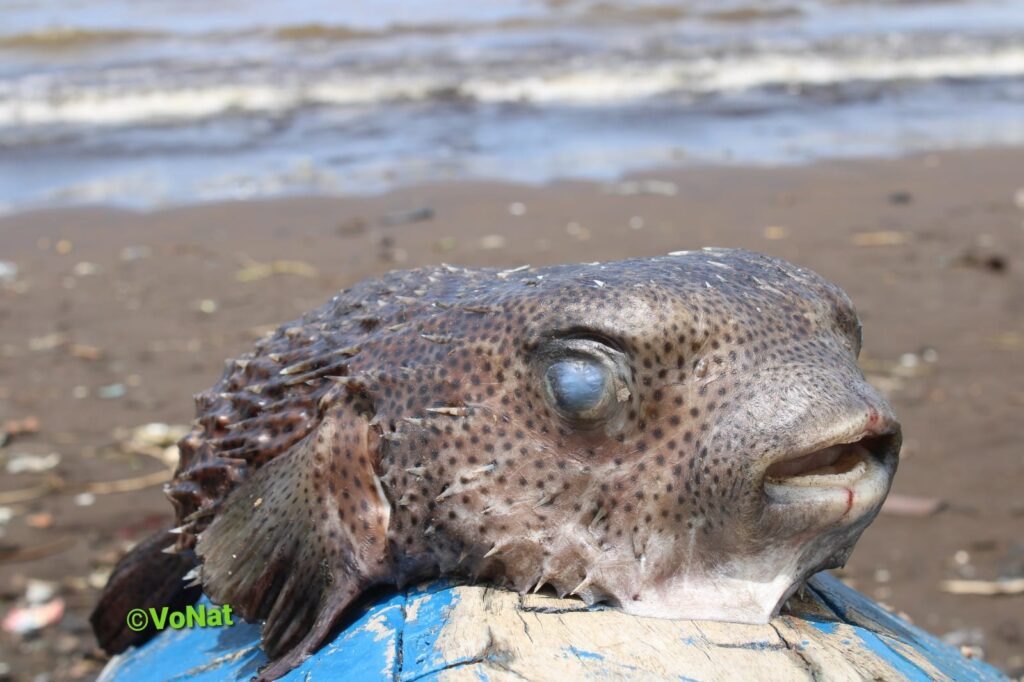At the bustling fishing site in Dockyard Down Beach-Limbe, South West Cameroon, a curious sight caught the attention of a team of conservationists from a community-based organization in Cameroon, Voice of Nature (VoNat), November 26, 2024. A Porcupine fish, laid abandoned near the fishing boats. While its distinctive features might fascinate many, local fishermen seemed to have no interest in it.
Inquiries made by the VoNat team who were on field activities revealed that the belief system of the fishing community in Down Beach Limbe holds the fish to be a source of bad omen. “It is a taboo to eat this fish and anyone who eats it may attract misfortunes,” said a local fisherman.

The dead fish was avoided by the fishermen, neither consumed nor sold due to the fear of inviting ill luck. Some locals expressed that if the fish were still alive, it would have been returned to its natural habitat.
The Porcupine fish are short and broad bodied fish species with large eyes, black dots on their bodies and sharp spines which they use for protection. They are usually found in tropical and sub-tropical shallow waters around the world.
The Porcupine fish plays an important role in the balance of the marine ecosystem. By feeding on coral-eating sea urchins and other hard-shelled creatures, they help control these populations, which is vital for maintaining healthy Coral reefs. Even though, not featured on the red list of the International Union for conservation of nature (IUCN), habitat destruction and overfishing do threaten the survival of this marine species. Research reports suggest the fish species to be a delicacy in countries as Japan, Philippines, Cebu, Hawaii, Tahiti.

Interestingly, in Limbe, traditional belief systems are playing a pivotal role in protecting the porcupine fish.
Dr Efuet Simon, a Cultural Ecologist and head of the Sociology and Anthropology Department in the University of Buea, advances that local taboos and traditions have long played a role in protecting certain species, as communities often associate them with spiritual significance or bad omens. This is prevalent in most Cameroonian communities.
“The perception of people which is generally linked to their world view can tell us how they appreciate the environment in terms of either destruction or conservation. Culture has an implication of how people treat their environment. The cultural meaning, they give to an ecological niche will influence how they treat the environment”. Said Dr Efuet Simon.

Globally, similar cultural practices have been documented. According to a 2023 research study, the Akan people in cote d’Ivoire consider the catfish to be sacred, hence it is forbidden to fish it or cultivate crops around some of the rivers that host them. In the Pacific, Some Fiji communities associate Sea turtles with ancestral spirits, restricting the hunting and consumption of sea turtles. These traditions have aided in preserving vulnerable species. However, the challenge remains in balancing respect for traditional practices with scientific approaches to conservation. Dr Efuet Simon emphasizes that indigenous populations have long employed conservation mechanisms rooted in traditions, myths and taboos, which should be integrated into modern conservation efforts. Highlighting their potential to complement contemporary initiatives in protecting marine biodiversity, as seen with the Porcupine fish in Limbe. This punctuates the need for a comprehensive study of traditional belief systems and how they protect or deplete the world’s natural resources.
By Jabi Katy
